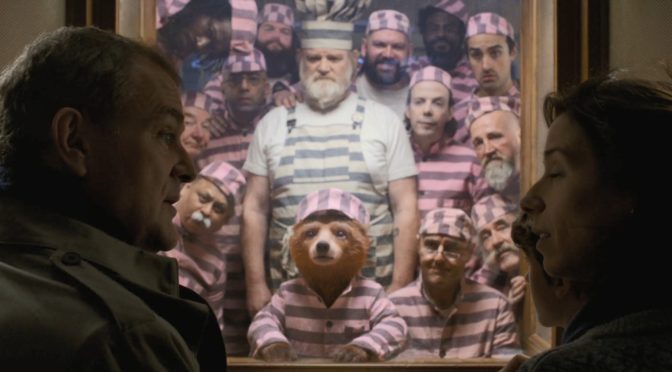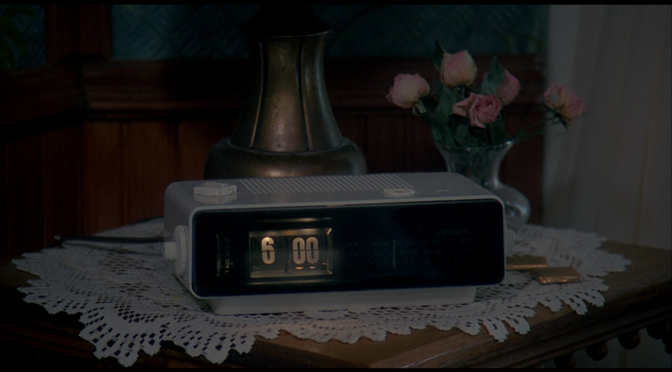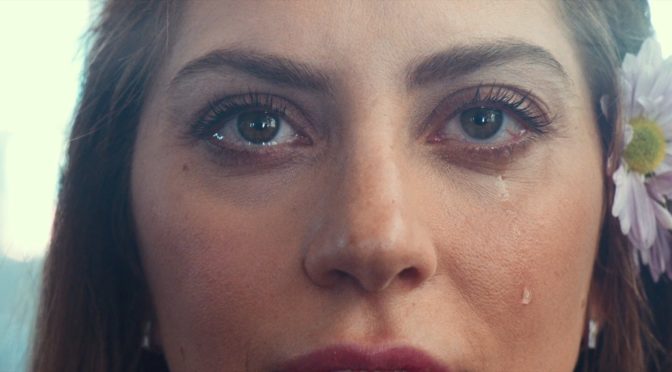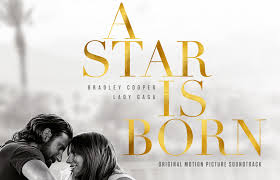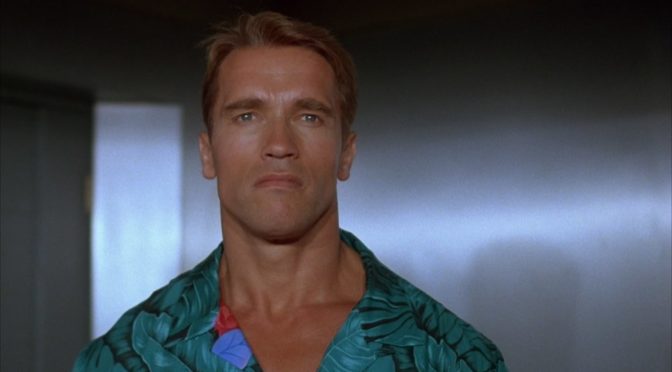I have a real frenemy relationship with my own expectations. They have their uses. They’re good for making predictions and they’re fun to gossip with. Still, when all is said and done, I consistently root for them to look stupid. I live to see them proved wrong. I love seeing my cinematic expectations get crushed. Is there any feeling better than being surprised by a film? We inevitably bring certain expectations into the theater with us. For as much as I try to clear my mind of any prejudgments and extracurricular baggage before a screening, it’s impossible to keep my overly active brain from forming some premature impressions about what it’s about to watch. Predictions about the film’s quality, thoughts about the source material, suspicions about who the movie is catering to, and feelings about the director and actors’ past work. There may be no better example of me wrongly saddling a film with expectation and prejudgment than Paul King’s 2014 film, Paddington. Prior to its release, the Internet had itself a field day mocking the films marketing, and I can’t deny that it was a lot of fun to witness at the time. The film’s posters showed the delicately drawn cartoon bear now rendered into an uncanny actual bear though what initially appeared to be hideously misjudged CGI. The sweet little ursine looked nightmarish. His fur was realistic to the point of feeling fake and his beady bear eyes peered out with lifeless, alien apathy. Memes flooded the Internet, transporting this ursine member of the Uncanny Valley into various classic horror movie posters, where his dead-eyed stare felt perfectly, hilariously at home. The marketing was a terrible joke, and beyond that many assumed the movie itself would just be no good. That it would take a gentle, whimsical figure of child literature and plug him into the latest homogenous piece of slapstick spectacle. Another crass, CGI-infested product in a cinema landscape littered with it. The knives were out for Paddington and we all had our reasons. We all ended up being very, very wrong. Paddington turned out to be a remarkably winning, charming little film. We weren’t just wrong about its general quality, but also about its very nature. What was expected to be crass and garish was genuinely heartfelt, creative and fun. And the little bear mocked for his creepy lifelessness has now turned out to be one of the most sweetly vivacious, heartwarming characters in the whole of 21st century cinema. Paul King’s first Paddington film far exceeded the expectations set for it. And, for as much as I was now prepared for Paddington 2 to actually be good, it utterly obliterated whatever expectations one might attach to a sequel to a surprisingly good family film starring a CGI bear. Paddington is a fine, fine film. Paddington 2 is an instant classic. A new masterwork in the family film genre, fit to be uttered in the same breath as Babe.
The story structure of Paddington 2 is a thing of simple elegance. The first film was about how Paddington (Ben Whishaw, making unflappable kindness subtle and interesting), a young Peruvian bear being raised by his adoptive aunt and uncle, leaves the Andes to fulfill his Aunt Lucy’s longtime dream of seeing London. Paddington was about a kind little bear setting off for a new place and finding a new home and family with the Browns. The Browns. The Brown household consists of gruffly accommodating accountant Mr. Brown (Hugh Bonneville), kindhearted illustrator Mrs. Brown (Sally Hawkins, channeling the same effortless tenderness that made her so terrific in The Shape of Water), their teenage children Jonathan and Judy, and their tartly funny no-nonsense housekeeper Mrs. Bird (the great Julie Walters). Paddington was about the polite, diminutive bear winning his way into the Browns’ hearts, finding a new home, brightening the world around him through his soft-spoken positivity, and tangling with a colorful villain. Paddington 2 is more of the same in the very best way. What these films have going for them is vibrant color, confident charm, and gently side-splitting humor. Part of what makes Paddington 2 such an improvement over its lovely predecessor is that there is no need for table-setting. London is now very much Paddington’s home and Paul King has more time to spend just enriching his world and its inhabitants, through wit, emotion, and splendidly choreographed spectacle. Another way Paddington 2 improves on Paddington is through a tremendously fun and interesting villain. The first film’s villain was a depraved and chilly taxidermist with a vendetta, played in a perfectly good performance by Nicole Kidman. In Paddington 2, antagonist duties go to Hugh Grant, having the time of his life and giving quite possibly the performance of his career. Grant plays Phoenix Buchanan, a once-celebrated London stage actor now mostly forgotten and relegated to appearing in wonderfully humiliating dog food commercials. Paddington runs afoul of Phoenix when he finds a beautifully ornate and very expensive pop-up travel book of London that he wants to buy for Aunt Lucy’s birthday. Aunt Lucy’s dream was to visit London and Paddington sees the book as a small way of helping her experience that dream. The rub is that Phoenix Buchanan knows the book is also secretly a treasure map, and finding its riches is the only way he can finance his long-delayed one man comeback show. Paddington gets a series of jobs to try to earn money for the book, while the vain, selfish Phoenix Buchanan connives to steal it from the store. Eventually, mishap and misunderstanding land Paddington in prison for burglary, while Phoenix remains free to carry out his treasure hunt. As he does everywhere he goes, Paddington makes unlikely friends in prison, including a curmudgeonly bruiser of a chef named Knuckles McGinty (Brendan Gleeson, brilliantly funny). While the Browns try to clear Paddington’s good name, Paddington transforms a maximum security prison into a charming, pastel-tinted luxury spa all through the power of cheerfulness and marmalade sandwiches.
And, on paper, maybe that all sounds like too much sugary sentiment for any one film to have on its hands. Perhaps it all sounds like having nothing but marmalade (or mah-mah-lade, as Knuckles hilariously pronounces it) for a meal. There is precious little irony in Paddington 2, which is one way that a film can temper its sentimentality. Paddington 2 is absolutely dripping in good-natured, kindly emotion. And somehow it all works. It works by leaning into its unabashedly earnest nature. It is probably ten times more sentimental than I can convey in words, and it all completely and totally works. It doesn’t just function, it soars every level of filmmaking. It succeeds in the same way Singin’ In the Rain succeeds. As it turns out, you can make a great film that is utterly saturated in sweetness and joyful emotion if you are smart and fearless about how you approach it. Our intrepid hero is unafraid of being judged for his kindness, his thoughtfulness or his sincerity and the movie follows his lead. Like Singin’ In the Rain, Paddington 2 is an open-hearted, joyous feast of color, sound, and comedic setpieces. Paddington 2 is unfiltered joy in cinematic form. It radiates generosity and good humor from its every frame. It journeys into a dank prison because it knows that whatever sorrow is in there doesn’t stand a chance against it. The gloomiest raincloud is powerless in the face of its benevolence. Almost every character is charming and nice. Most of the movie’s sourpusses quickly succumb to Paddington 2’s onslaught of kindness and good will. And the film’s one outright villain is hysterically funny and a consistent hoot to watch. Paddington 2 is just too confident and purposeful in its joyfulness to ever feel saccharine. It rallies love, warmth, sweetness and color and marches them into battle against the forces of darkness.
In our fractious times, rife with discord, bigotry and trolling, kindness starts to look more and more like a radical act. One of 2018’s big success stories was Morgan Neville’s Fred Rogers documentary, Wont You Be My Neighbor?. I like that movie quite a lot, but I think Paddington 2 is fighting for the same cause with quite a bit more flair. Paddington 2 has a sharp, witty screenplay full of insightful lines, but the most instantly iconic may be the mantra Paddington picked up from Aunt Lucy and that he passes on to the stubbornly petulant Knuckles McGinty. “If we are kind and polite, the world will be right.” In its sweet, effervescent way, Paddington 2 is out to fight back against the notion of kindness as weakness. It is about love and selflessness as sources of strength and courage. There may be no better example of virtue as something powerful than when Knuckles insults Aunt Lucy and Paddington give him one of his aunt’s patented hard stares. It is a fixed, unwavering look of disapproval. It is not outwardly aggressive, but it is unflinching in its moral censure. When someone does wrong by you, you do not need to insult them or harm them back, but you let them know they have acted out of turn and you do not back down. As Knuckles blanches in discomfort, Paddington explains, “My Aunt Lucy taught me to do them when people have forgotten their manners.” This is a scene of genuine power. I found myself tearing up a bit. And then I shook my head and laughed, remembering that time five years ago when I mocked that Paddington poster for not appearing emotionally expressive enough. Just look at him now. There may not be a single facial expression in all of 2018 film with more simple, expressive power than that hard stare. Paddington 2 announce that we should feel resilient in our decency and never look back. When we find rudeness and spitefulness out in the world, we don’t have to respond with more negativity. But we should not hesitate to make hate squirm.
In my review for Lady Bird, my favorite film from 2017, I started a new annual tradition. I like to call it the Damp Face Award. The honor goes to whatever film leaves me with teary eyes for the greatest percentage of its runtime. A film can win the Award through sadness, humor or naked emotion, but any film wins is probably going to have some combination of all three. The Damp Face Award favors laughter and pathos, two qualities that I value highly in my films. This year saw no shortage of emotionally strong work, but Paddington 2 wins the 2018 Damp Face Award handily. It is a film of bottomless heart and wit. I cannot overemphasize how very, very funny it is both verbally and visually. It is also an overwhelmingly poignant film. Paul King’s family opus is tremendously fun and inventive, from the prison shenanigans to Phoenix Buchanan’s amazing, endless stream of costume changes when committing his crimes. But the film’s stroke of genius for me is that its central story arc is so simple and generous. Paddington loves his Aunt Lucy dearly, appreciates here years of support and sacrifice (the film smartly opens with a flashback of Aunt Lucy rescuing the orphan cub Paddington from a Peruvian river), and wants to give some portion of that kindness back to her. It is the reason that Paddington 2 can be the giddy, colorful, digressive whirligig that it is and still feel so grounded and cohesive. Paddington 2 is about the power of simple, selfless acts and it is about being grateful for the people (and bears) who love us. Without spoiling anything, the film concludes with a small act of kindness so genuinely heartfelt and overwhelmingly meaningful that any list of the decade’s best endings would be incomplete without it. It is such a refreshingly simple; a gesture and four words. Realizing that this little moment was what this entire film had been building toward completed walloped me. It felt so perfectly scaled to the compassionate little family film around it, but I was unprepared for its power. Even in very good family films, one does not expect moments this intimate, emotional, and well-observed.
I’ve been telling anyone who asks and a few who don’t that my favorite quality in 2018 cinema is how hungry the filmmakers seemed. The great works of the past year left me with a lot to think about and unpack, and that is what reviews are for. But they also felt so immediately satisfying in the moment I was watching them. There’s a feeling almost beyond words when a film is clicking into lace while you’re watching it. I chalk it up to conviction and exuberance, and there were few films in this or any other year with as much infectious exuberance as Paddington 2. It’s an infectiously exuberant film about the transformative, transportive power of infection exuberance. And that’s not just something it’s selling to its audience. Paddington 2 is also its own most loyal customer. It is a symphony of goodness that builds and builds upon itself. It is a rare and beautiful thing to find a family film with this degree of zest and directorial prowess. The same goes for sequels. And that rare quality becomes even more astounding when we factor in that this is a sequel to a family film based on a very British children’s book series about a talking, marmalade-loving Peruvian bear exploring jolly old England. I have no conceivable idea of what the expectation is or should be for a film like that. Maybe there isn’t one. Maybe that’s as it should be.
